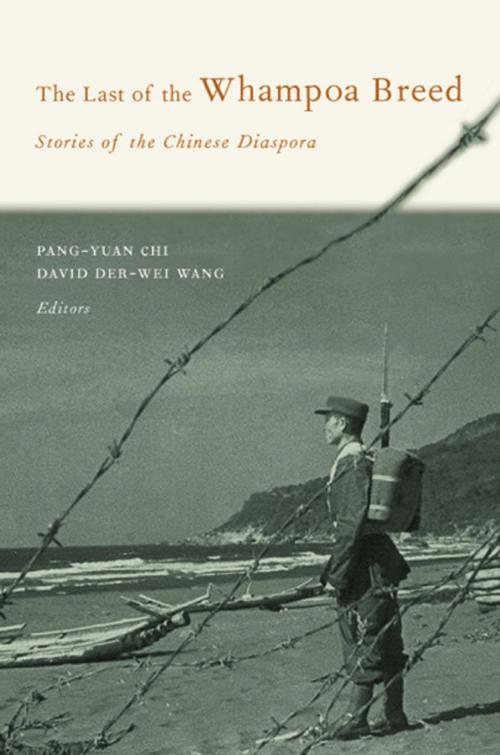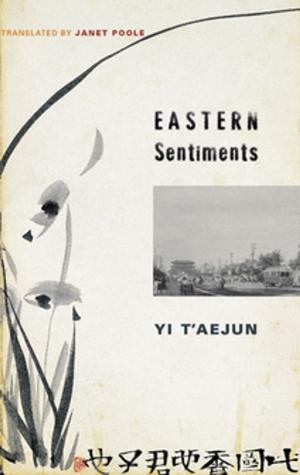The Last of the Whampoa Breed
Stories of the Chinese Diaspora
Fiction & Literature, Literary Theory & Criticism, Asian, Far Eastern, Literary| Author: | ISBN: | 9780231509053 | |
| Publisher: | Columbia University Press | Publication: | December 10, 2003 |
| Imprint: | Columbia University Press | Language: | English |
| Author: | |
| ISBN: | 9780231509053 |
| Publisher: | Columbia University Press |
| Publication: | December 10, 2003 |
| Imprint: | Columbia University Press |
| Language: | English |
Whampoa Military Academy was China's first modern military institution. For decades the "Spirit of Whampoa" was invoked as the highest praise to all Chinese soldiers who guarded their nation heroically. But of all the battles these soldiers have fought, the most challenging one was the civil war that resulted in the "great divide" of China in the mid-twentieth century. In 1949 the Communists exiled a million soldiers and their families to compounds in Taiwan and cut off communication with mainland China for forty years.
The Last of the Whampoa Breed tells the stories of the exiles written by their descendants, many of whom have become Taiwan's most important authors. The book is an important addition to the vastly underrepresented literature of Taiwan in translation and sheds light on the complex relationship between Taiwan and the People's Republic of China. Western readers will not at first recognize the experiences of these soldiers who were severed from a traditional past only to face unfulfilled promises and uncertain futures. Many of the exiles were doomed to live and die homeless and loveless. Yet these life stories reveal a magnanimous, natural dignity that has transcended prolonged mental suffering. "I Wanted to Go to War" describes the sadly ineffectual, even comic attempts to "recapture the mainland." The old soldier in "Tale of Two Strangers" asks to have his ashes scattered over both the land of his dreams and the island that has sheltered him for forty years.
Some of the stories recount efforts to make peace with life in Taiwan, as in "Valley of Hesitation," and the second generation's struggles to find a place in the native island society as in "The Vanishing Ball" and "In Remembrance of My Buddies from the Military Compound." Narrating the homeland remembered and the homeland in reality, the stories in this book affirm that "we shall not let history be burned to mere ashes."
Whampoa Military Academy was China's first modern military institution. For decades the "Spirit of Whampoa" was invoked as the highest praise to all Chinese soldiers who guarded their nation heroically. But of all the battles these soldiers have fought, the most challenging one was the civil war that resulted in the "great divide" of China in the mid-twentieth century. In 1949 the Communists exiled a million soldiers and their families to compounds in Taiwan and cut off communication with mainland China for forty years.
The Last of the Whampoa Breed tells the stories of the exiles written by their descendants, many of whom have become Taiwan's most important authors. The book is an important addition to the vastly underrepresented literature of Taiwan in translation and sheds light on the complex relationship between Taiwan and the People's Republic of China. Western readers will not at first recognize the experiences of these soldiers who were severed from a traditional past only to face unfulfilled promises and uncertain futures. Many of the exiles were doomed to live and die homeless and loveless. Yet these life stories reveal a magnanimous, natural dignity that has transcended prolonged mental suffering. "I Wanted to Go to War" describes the sadly ineffectual, even comic attempts to "recapture the mainland." The old soldier in "Tale of Two Strangers" asks to have his ashes scattered over both the land of his dreams and the island that has sheltered him for forty years.
Some of the stories recount efforts to make peace with life in Taiwan, as in "Valley of Hesitation," and the second generation's struggles to find a place in the native island society as in "The Vanishing Ball" and "In Remembrance of My Buddies from the Military Compound." Narrating the homeland remembered and the homeland in reality, the stories in this book affirm that "we shall not let history be burned to mere ashes."















